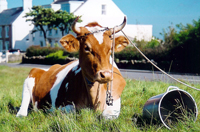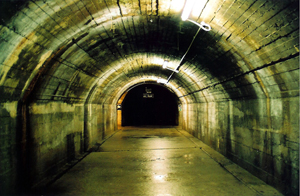Guernsey

The island of Guernsey, part of the Channel Islands, lie in the bay of St Malo in the English Channel, about 30 miles from the north coast of France and 70 miles from the south coast of England. As well as the island of Guernsey itself, the Bailiwick of Guernsey also includes Alderney, Sark, Herm, Jethou, Brecqhou, Burhou, Lihou and other islets. Guernsey is not part of the United Kingdom or the European Union.

It is divided into 10 parishes. Guernsey has a rich history and many old local families. New families emigrated here in the past to work in the various industries like quarrying, growing, and shipping. Many local families emigrated to Australia, Canada, America and descendants of Guernsey families are spread around the world.
Guernsey History
Around 6000 BC, as sea levels rose, Guernsey became an island and was cut off from Continental Europe. Neolithic farmers settled the coast and created the dolmens and menirs found in the islands.
It was traditionally believed that the island's original name was Sarnia although recent research indicates that this may have been the Latin name for the island of Sark.
In 933 the islands came under the control of the Duchy of Normandy. Guernsey and the other Channel Islands represent the last remnants of the medieval Duchy of Normandy. St Sampson, born in the late 5th century and Abbot of Dol in Brittany, introduced Christianity to Guernsey.
During the Middle Ages the island was attacked repeatedly by French pirates and naval forces. During the English Civil War, Guernsey sided with Parliament, while Jersey remained Royalist.

Prosperity increased dramatically during the nineteenth century due to Guernsey’s success in the global maritime trade and the rise of the stone industry.
During World War 1 approximately 3,000 island men served in the British Army in France with about 1,000 of these serving in the Royal Guernsey Light Infantry regiment which was formed from the Royal Guernsey Militia in 1916.

The Bailiwick of Guernsey was occupied by German troops in World War II. Many Guernsey children were evacuated to England just before the occupation to live with relatives or strangers during the war. Some islanders were deported by the Germans to camps in the southwest of Germany. There was a concentration camp in Alderney where forced labourers from Eastern Europe were kept. Guernsey was heavily fortified during WWII and defences are visible all around the coast.